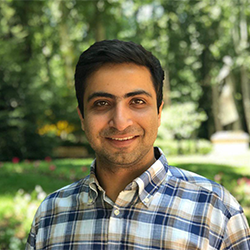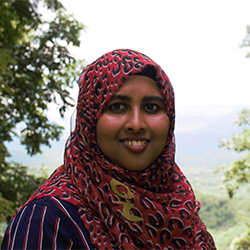Research Head
 |
Waldemar Karwowski Waldemar Karwowski received the M.Sc. degree in production engineering and management from the University of Technology of Wroclaw, Poland in 1978, the Ph.D. degree in industrial engineering from Texas Tech University, USA, in 1982, and the D.Sc. degree in management science from ORGMASZ, Poland in 2004. He is currently Professor and Chairman of the Department of Industrial Engineering and Management Systems, and Executive Director, Institute for Advanced Systems Engineering, University of Central Florida, Orlando, USA. His research interests include human systems integration, human factors, safety, neuroergonomics, and applications soft computing and nonlinear dynamics to modeling of human-machine systems. Dr. Karwowski is a Fellow of Institute of Industrial Engineers (IIE), Human Factors and Ergonomics Society (HFES), The Institute of Human Factors and Ergonomics (United Kingdom), and International Ergonomics Association (IEA). He serves as Co-Editor of the Human Factors and Ergonomics in Manufacturing and Service Industry journal (Wiley &Sons), and Co-Editor-in-Chief of Theoretical Issues in Ergonomics Science journal (Taylor and Francis, Ltd). He is past President of the Human Factors and Ergonomics Society (2007), and the International Ergonomics Association (2000-2003). |
Members
 |
Farzad Farahani Farzad V. Farahani is a Ph.D. student in the Computational Neuroergonomics track of the Industrial Engineering program, in Prof. Waldemar Karwowski’s group at the University of Central Florida. He holds B.S. and M.S. in industrial and system engineering from the Amirkabir University of Technology (Tehran Polytechnic). His goal is to better understand the brain as a complex system in relation to behavioral performance, as well as how information is integrated across functionally specialized neural units that reside in spatially disparate brain regions. Farzad's current research focuses on analyzing connectivity patterns in the human brain using computational models such as graph theory and machine learning, as measured with functional and anatomical neuroimaging methods |
 |
Sara Hejazi Before joining the Computational Neuroergonomics Lab (CNL) at the University of Central Florida (UCF) in Fall 2018, I did my undergraduate degree in industrial engineering at Ferdowsi University of Mashhad (FUM) and my master degree in human factor program at Iran University of Medical Sciences (IUMS). In my master thesis, I carried out EEG experiments on Distracted Drivers in a simulated environment. I would like to pursue my studies in the areas of Cognitive Neuroscience and Applied Cognition, for I have found these fields to be dealt with the particularities of human’s everyday life activities, which happen to be the main subject of the new-born field of Neuroergonomics, as well. My interest and approach to these fields have been stimulated by R.Parasuraman’s notion of ‘The brain at work’. In addition, I am highly interested in doing neurophysiological experiments such as EEG and FMRI. One of the aspects of Neuroergonmics which is of high interest for me is to carry out experiments and then analyzing the acquired data to figure out how the brain works once the person is doing a specific task. The field of study which I would probably like to work on for my PhD Thesis is the effect of secondary task on people’s distraction and performance. In sum, my research interests are Neuroergonomics, Cognitive Neuroscience, Cognitive Engineering, Human factor, and Applied Cognition. |
 |
Lina Ismail Lina is a second-year doctoral student pursuing her Ph.D. in the Industrial Engineering and Management Systems program at the University of Central Florida. She is interested in the human Factors and ergonomics area that focuses on assessing the human brain signals with relation to work mainly the Physical Neuroergonomics area. She is a teaching assistant and a research assistant at the Computational Neuroergonomincs Laboratory advised by Professor Waldemar Karwowski. She received her M.A. in Industrial Engineering focusing on analyzing the Stereolithography process parameters using system dynamics tools at Arab Academy for Science, Technology & Maritime Transport. She has a Seven year’s experience in teaching different Industrial Engineering undergraduate courses. Lina hopes to better design a safe working environment for operators who work daily with dynamic and complex tasks by better understanding the human brain at work. |
 |
Mahjabeen Rahman I completed my undergrad from Bangladesh University of Engineering & Technology (BUET) with a major in Industrial and Production Engineering. I worked on human performance measurement using a fuzzy logic tool which was published later. Then I graduated with an interdisciplinary M.Sc. (Biomimetics) from Rhine Waal University in Germany. I worked with Thoughtcrew Limited, UK on the concept of a biomimetic organization management tool taking inspiration from nature e.g. swarms and flocks, ecdysis, symbiosis, etc. Currently I am a graduate student here at University of Central Florida in the department of Industrial Engineering & Management Systems. My research interests include human factors, ergonomics, performance measurement, safety management, organization management. Ergonomics and human factors seem fascinating because it helps us to empathize and aims for ease and comfort in human lives while being productive. Overall, my common interests in new research ideas and human factors engineering led me to the field of neuroergonomics. |